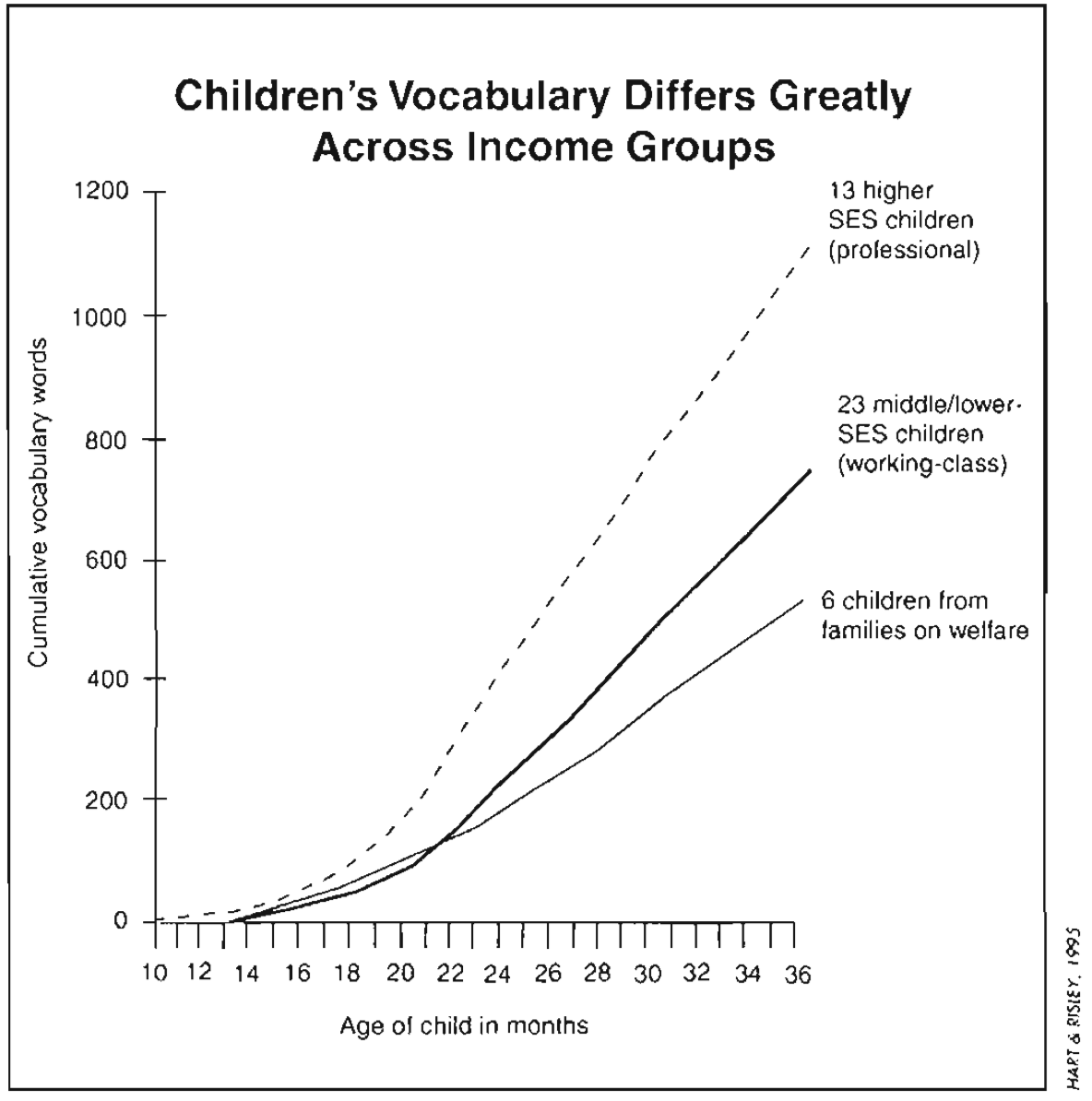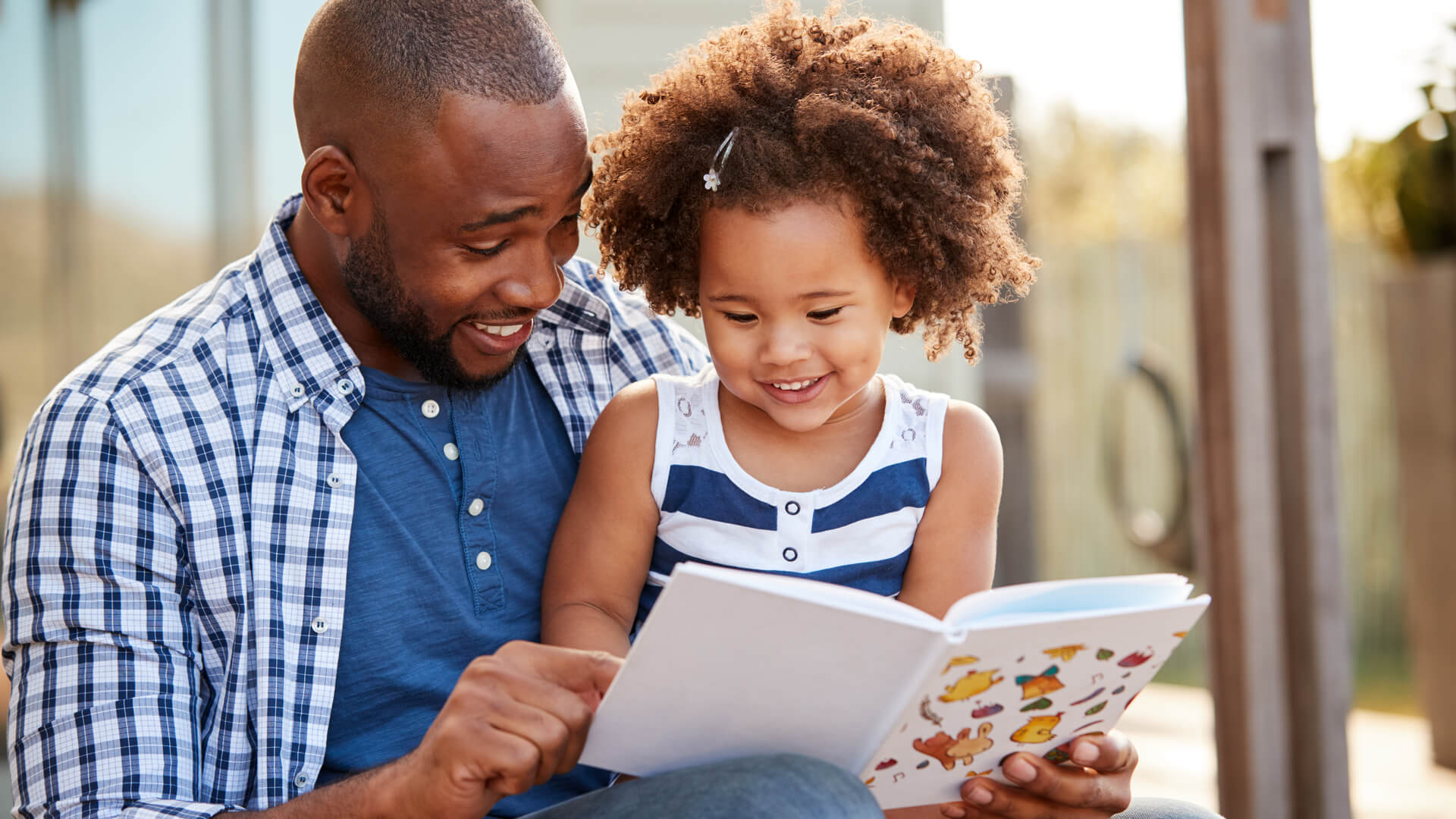Reading to Kids: The “Million-Word Gap”
The benefits of reading to kids are fairly well known, but the importance of reading to them can be understood with the following statistic:
Young children whose parents read them five books a day enter kindergarten having heard about 1.4 million more words than kids whose parents never read to them.
Ohio State's Crane Center for Early Childhood Research
The difference in expressive and receptive vocabulary skills in young children easily explain this million-word gap. It also contributes to kids’ reading difficulties and poor vocabulary use.
So what if your child just doesn’t want to read five books a day? The study further states that “even kids who are only read one book a day will hear about 290,000 more words by age 5 than those who don’t regularly read books with a parent or caregiver.” This means that reading only one book a day makes a huge difference in your child’s educational journey.
It makes sense that the more words that children see before entering kindergarten, the higher the success rate of reading and writing skills. This happens when they have prior knowledge of the words, and it’s not the first time they are being introduced to them. The more you expose your children to and explain concepts, the easier they are to understand and to place into their long-term memory.
So, How Many Words?
According to a recent study that will be published in the Journal of Developmental and Behavioral Pediatrics, here’s the number of words kids will hear by the time they are 5-years-old:
- Never read to: 4,662 words
- 1-2 times per week: 63,570 words
- 3-5 times per week: 169,520 words
- Read daily: 296,660 words
- Read five books a day: 1,483,300 words
The jump in words between the “never read to” and “5 books a day” is astounding. I have to admit, I never realized the amount of word exposure children get with just five books a day. Granted, I did know how important reading is from a young age, but my goodness! The research is overwhelming!

The Importance of Reading to Kids
A controversial 1992 study suggested that children growing up in poverty hear about 30 million fewer words in conversation by age 3 than those from more privileged backgrounds. This study went on to state that children who are raised with professional parents hear, on average, 45 million words, and an average child in the working-class hears 26 million words. Children whose families are on welfare hear around 13 million words. Other studies since then have suggested this 30 million word gap may be much smaller or even non-existent.
Another study showed that 86-98% of the words in a child’s vocabulary were also found in their parents' vocabulary. So, what does this tell us? Kids listen to what we say. Whether we are talking to them or not, they will pick up on vocabulary words.
What’s the Difference between Conversation and Books?
As a speech pathologist, I get parents who ask me, “well, I’m talking to him, isn’t that enough?” The short answer is, no . . . it’s not. The reason for this is because the vocabulary in books is more advanced and specific compared to what we use in conversation with our toddlers.
For example, my daughter’s favorite group for about 3 months of her life was a book about spiders. Yes, I know . . . gross. This book had words like “arachnid,” “abdomen,” “jaws,” and “lush forests.” I had never used those words in general conversations with her. When she stopped wanting to read this book and moved on to Moana (thankfully), she would randomly ask me about the abdomen of a spider. I was amazed that she remembered. Flash forward a little further and the movie, Beetlejuice was on TV. A spider is shown in the beginning and she said, “look, mommy, arachnid.”
This leads me to another point . . . just because your child doesn’t say the word right away, doesn’t mean they don’t understand and retain the information. Sometimes children learn after many repetitions of words in order for it to “sink in.” It was about a month after we stopped reading the spider book that my daughter was repeating words from it and was able to generalize the information to a movie.
A Speech Therapist's Experience
I worked as an early intervention therapist for about five years. During that time, I had a wide range of families from different economic backgrounds. One of the children I worked with was a 2-year-old little girl whose family only spoke Spanish. She went to an English language preschool and wasn’t learning either language successfully.
When giving family education at the end of the session, I asked about reading books. I knew they didn’t have any as their income level was probably considered below poverty level. I, with the help of an interpreter, reinforced the importance of reading at least 2 books a day to the little girl to help expose her to language. The mom did take her to the library to pick out two books for our next session.
The little girl LOVED it. In fact, she kept giving me the books over and over again to read. We continued to do this at the end of every session and she began speaking. By the time she turned three and was aged-out of early intervention, she was speaking in short phrases.
I know we are busy as parents and it’s hard to budget that time. I can tell you what works for me. We started reading to our daughter when she was around 9-months-old, and we read as many books as possible until she finished her night time bottle. We still read to her before she goes to bed. She now picks her books, which makes it more fun for her.
Start incorporating reading into your night time routine! Kids thrive on routines and will eventually get the hang of it. Pick books or topics that you know they are interested in reading.
 By Stacie Bennett
By Stacie Bennett